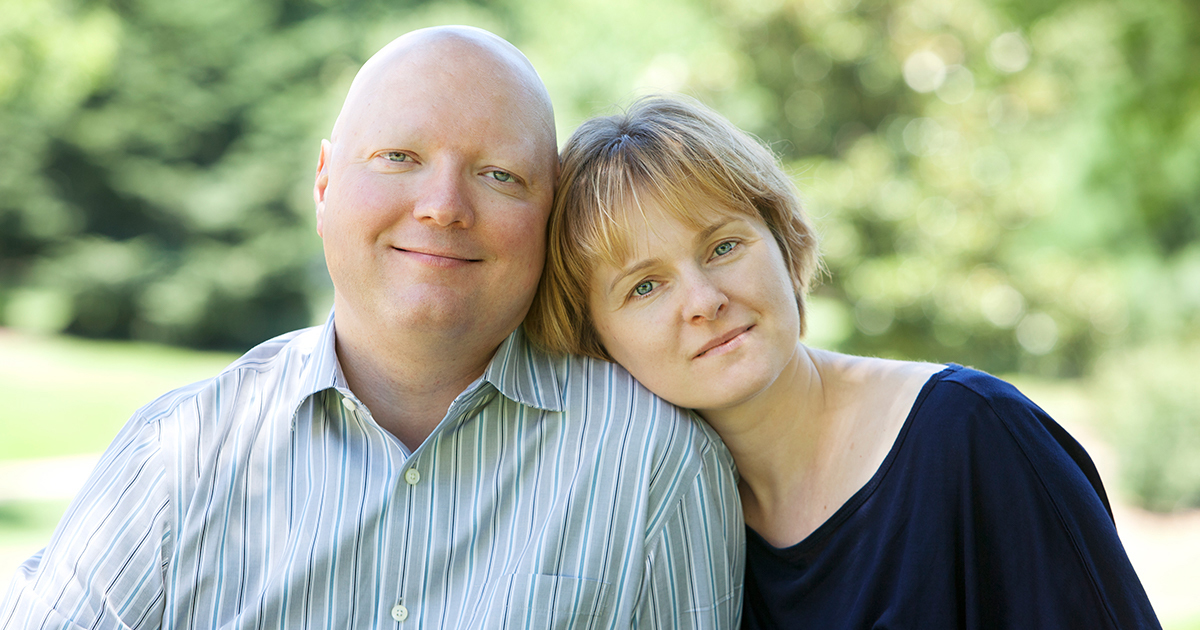About Leukemia
Leukemia occurs when blood cells acquire mutations to their DNA. Certain abnormalities cause these blood cells to grow and divide more rapidly and to continue living when normal cells would die. Over time, the abnormal blood cells crowd out the healthy blood cells in the bone marrow, leading to fewer healthy white blood cells, red blood cells, and platelets. The National Cancer Institute estimates that in 2023, over 59,000 people will be diagnosed with leukemia in the United States.
Types of Leukemia
Leukemia is classified by how fast the leukemia progresses and the type of cell affected.
Classification of leukemia:
- Acute leukemia: A rapidly progressing condition that creates immature blood cells which do not function normally.
- Chronic leukemia: A slowly progressing condition that creates more mature blood cells which can function normally for a period of time.
- Lymphocytic leukemia: A condition affecting the lymphoid cells (lymphocytes), which form lymphoid tissue.
- Myelogenous leukemia: A condition affecting the myeloid cells, which give rise to red blood cells, white blood cells, and platelet-producing cells.
Major types of leukemia include:
- Acute lymphocytic leukemia (ALL)
- Acute myelogenous leukemia (AML)
- Chronic lymphocytic leukemia (CLL): The most common form of leukemia among adults, this condition is characterized by the gradual accumulation of immature white blood cells in the blood and bone marrow. CLL is also considered a form of non-Hodgkin lymphoma.
- Chronic myelogenous leukemia (CML)
Symptoms of Leukemia
Symptoms of leukemia may vary depending on which cells are affected.
Symptoms of leukemia may include:
- Bone pain or tenderness
- Easy bruising or bleeding, including more frequent nosebleeds, heavier menstrual periods, or bleeding from the gums
- Enlarged lymph nodes
- Enlarged liver or spleen, which may feel like a pain below the ribs on the left side
- Fever
- Night sweats
- Persistent fatigue
- Severe or frequent infections
- Shortness of breath
- Swollen lymph nodes
- Tiny red spots in skin (petechiae)
- Unintentional weight loss
- Weakness
Risk Factors for Leukemia
While the exact cause of leukemia is unknown, certain people are at greater risk for the condition. Different forms of leukemia are associated with different risk factors.
Risk factors for leukemia may include:
- Comorbid conditions: Certain genetic disorders are linked to leukemia, and other blood disorders such as myelodysplastic syndrome can lead to leukemia.
- Family history
- Personal history: Exposure to chemicals such as benzene, radiation exposure, and smoking are associated with leukemia risk.
- Sex: Many of the most common forms of leukemia affect male patients at higher rates.
Treating Leukemia at UT Health Austin
Treatment will require an accurate diagnosis and depend on specific type of leukemia. Your care team will work with you to develop a treatment plan tailored to your individual needs. Treatment options may include a combination of radiation therapy, immunotherapy, chemotherapy, and/or stem cell transplant.
Care Team Approach
At UT Health Austin, we take a multidisciplinary approach to your care. This means you will benefit from the expertise of multiple specialists across a variety of disciplines caring for you in one place to avoid having to schedule multiple appointments with providers at locations all over the city. The Livestrong Cancer Institutes care team includes medical oncologists, surgical oncologists, radiation oncologists, pathologists, radiologists, oncofertility specialists, onco-psychiatrists, genetic counselors, physical therapists, dietitians, social workers, and more as well as other members of the CaLM Care Team who work together to help you get back to the things in your life that matter most to you.
We collaborate with our colleagues at the Dell Medical School and The University of Texas at Austin to utilize the latest research, diagnostic, and treatment techniques, allowing us to provide you with state-of-the-art care. We call our approach to cancer care CaLM (Cancer Life reiMagined), and your treatment begins with a comprehensive, whole-person assessment that your care team will use to develop a personalized care plan to treat your condition and help restore your wellness. The CaLM approach also includes coordinated, whole-person services, such as relaxation and stress reduction strategies, nutritional guidance, financial planning, and emotional support, that can make a real difference for you and your family. Advanced imaging and lab testing are also available on-site if needed.
Learn More About Your Care Team

Hematologic Malignancies
Health Transformation Building, 8th Floor
1601 Trinity Street, Bldg. A, Austin, TX 78712
1-833-UT-CARES (1-833-882-2737)
Get Directions

Livestrong Cancer Institutes
Health Transformation Building, 8th Floor
1601 Trinity Street, Bldg. A, Austin, TX 78712
1-833-UT-CARES (1-833-882-2737)
Get Directions